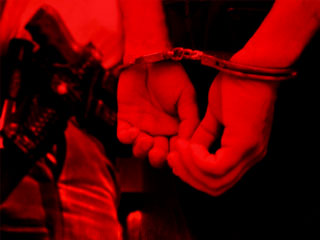SHOT Show Shocker: FBI Nabs 22 Firearms Reps at SHOT Show
 Culminating a 2.5-year investigation, on January 20th, FBI agents arrested 22 execs and sales employees at the 2010 SHOT Show, on allegations that the defendants, to secure lucrative arms contracts, had tried to bribe FBI agents posing as foreign officials. The FBI based its arrests on alleged violations of the 1977 Foreign Corrupt Practices Act (FCPA).
Culminating a 2.5-year investigation, on January 20th, FBI agents arrested 22 execs and sales employees at the 2010 SHOT Show, on allegations that the defendants, to secure lucrative arms contracts, had tried to bribe FBI agents posing as foreign officials. The FBI based its arrests on alleged violations of the 1977 Foreign Corrupt Practices Act (FCPA).
According to Outdoor Life: “Charged are people at companies in eight states and executives at companies in the United Kingdom and Israel. The defendants allegedly agreed to pay a 20 percent commission to a sales agent they believed represented the defense minister for an African country to win a multimillion-dollar deal to outfit the presidential guard. The sales agent was actually an undercover FBI agent, and no defense minister was involved at all.”
Over a two and a half year period, some 250 FBI agents were involved in the sting operation. Based on the length of the investigation, and the number of agents involved, this sting surely cost the taxpayers many millions of dollars, and also diverted manpower from much-needed investigations of suspected terrorists and big-time drug traffickers.
Can the Charges Stick?
At least one law professor thinks the Federal prosecutors may have great difficulty obtaining convictions. The reason is that object of the bribes was NOT a foreign official, but was instead an FBI agent. This may be similar to cases where store owners accused of selling alcohol to minors “beat the rap” because the “minors” were actually young-looking detectives well above the drinking age. Arguably, if there is no actual foreigner involved then there can not be an illegal bribe under the terms of the FCPA. However, there are some other crimes listed along with the alleged FCPA violations.
What Will Likely Happen?
We expect some of the less important defendants will plea bargain to stay out of jail. These “small fish” will be asked to turn States’ evidence to help the prosecution of the higher profile defendants, such as Smith & Wesson VP Amaro Goncalves. The big shots who were arrested will almost certainly mount a vigorous defense and appeal any convictions. The appeal process could go on for many years. Ultimately, the nation’s High Court might be asked to decide whether the FCPA can be violated when no actual foreign official was involved and the whole scheme was cooked up by American law enforcement.
Misguided Federal Priorities?
So far the mainstream media has missed the underlying question here — namely: “Why did the FBI, at the behest of the U.S. Dept. of Justice, commit millions of dollars and hundreds of thousands of man-hours to trick American arms salesmen, when their alleged ‘crime’ may not be an FCPA violation at all, and when there are other far more important priorities — such as real terrorists?” The Red Alerts blog declared: “When dealing with third world nations corruption is part of the price of doing business. Everyone knows that but the government wasted the time of at least 250 FBI agents while real Muslim terrorists were sneaking underwear filled with binary explosives on airplanes.”

















